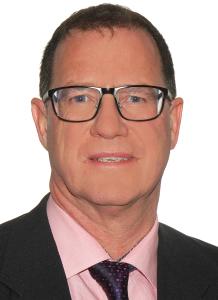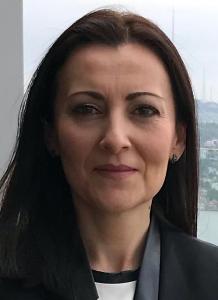ISTANBUL SECURITY CONFERENCE® 2021 - Auslandsbüro Türkei
Fachkonferenz
Details
CONFERENCE SUMMARY
Since 2008, Konrad-Adenauer-Stiftung Turkey in cooperation with the Strategic Studies Implementation and Research Centre of the Başkent University Ankara has organized the Istanbul Security Conference annually, bringing together high-level decision-makers and experts from Germany, Turkey and the world to discuss the most important regional security policy issues and their global implications with the purpose of formulating actual policy recommendations.
Due to the ongoing Covid-19 pandemic the Istanbul Security Conference 2021 was held as an online conference under Chatham House rules. The following summary therefore only contains the main discussion points of the panels. The content of the keynotes and following Q&A sessions remain disclosed.
This year's issue focused on the future of NATO, the current situation in Syria, the current status of migration governance within the EU- Turkey statement, Turkey's new role in the region, the security situation in the Eastern Mediterranean as well as the current state of German-Turkish relations.
Day 1
The digital conference was opened with remarks by the Chairman of Konrad-Adenauer-Stiftung and former President of the German Parliament Prof. Dr. Norbert Lammert, the President of the Başkent University Ankara, Prof. Dr. Ali Haberal as well as the Ambassador of the Federal Republic of Germany to Turkey, Ambassador Jürgen Schulz.
After that, Prof. Dr. Ibrahim Kalin, Presidential Spokesperson and Deputy Head of Security and Foreign Policies Council in Turkey, held a keynote speech on Turkey’s new role in the region covering issues like Syria, Afghanistan, Iraq, EU-Turkey relations, the transatlantic alliance, terrorism and the situation in the Eastern Mediterranean.
Panel 1: The Future of NATO under the Biden Administration
The conference’s first panel was dedicated to exploring how NATO will evolve and position itself after the last years of reorientation and the emergence of new tensions and adversaries. The clear commitment of the new US administration under President Joseph R. Biden towards NATO as well as the results of the NATO 2030 reflection process raised the question how this will manifestate itself exactly and what NATOs priority should be now.
Discussing the challenges ahead and possible responses to it, the panelists highlighted the importance of the transatlantic partnership, especially its value-based approach in a world of receding democracy and rising autocratic adversaries. The panelists pointed out that the strength of NATO does not only come from its military might but also from its unity and the fact that it was founded as an alliance of shared values. However, everybody agreed that in a dangerous world, values are not enough, and therefore NATO and its Allies need to do better to position themselves for ensuring deterrence.
There was a broad agreement that what NATO needs is stronger cyber defence and more technological co-operation as well as increased sharing of intelligence and a common effort to tackle disinformation campaigns that pursue to harm the alliance and undermine its democratic values. Further keywords of the session were cohesion, resilience and coherence. Seeing NATO more as a consultation forum would help resolve internal differences and improve its functioning through an extensive dialogue.
With regard to countering the threat stemming from China, it is not about NATO going to Asia and to directly confront China but about fending off China’s impact in NATOs area of operation which is mainly Europe. China’s rising power means to develop a new security infrastructure and a better response to cyber threats. China’s growing presence also presents a concern to NATO in Africa where it is becoming increasingly a competitor both economically and militarily, especially to the European NATO member states. One participant pointed out that one truth people have to face is that societies have to be ready to accept the loss of some economic prosperity if they want to defend their values.
Finally, as became clear in the many insightful discussions, what constitutes the biggest threats to security in the present world is no longer confined to the types of threats we used to know but encompasses manifold hybrid threats such as cyberattacks, disinformation and manipulation, global terrorism and also climate change. In response, a key priority for NATO members must be to invest in the resilience of their societies as well, as the panelists repeatedly affirmed. NATO needs the clear message of a new political recommitment of its members. The world has become more complex and is increasingly marked by a persistent instability. Moreover, around the world, democratic principles are under pressure. What is needed is to step up societal resilience next to military capacity; collaborate with allies outside NATO; strengthen partnerships with like-minded countries; use partnerships to advance shared interests and values while maintaining NATO’s key identity and purpose.
Day 2
Ambassador Selçuk Ünal, Director General for Syria at the Ministry of Foreign Affairs of the Republic of Turkey opened Day 2 of the conference by delivering a well-received keynote speech on the origins of the Syria crisis and its current developments with a following discussion covering the role of Turkey and an overall outlook of the conflict.
Later in the conference, in a session on Turkish-German Relations Dr. Johan Wadephul, Member of the German Parliament and Deputy Head of the CDU/CSU parliamentary group Akif Çağatay Kılıç, Member of the Turkish Parliament and Head of the Foreign Affairs committee were discussing the prospects of a positive agenda between the two countries and the underlying challenges that both countries are facing.
Panel 2: “The Roles and Capabilities of NATO within the New Geopolitics of North Africa and in the Eastern Mediterranean”
This plenary session focused on the roles and capabilities of NATO in the broader Mediterranean region at a time of growing threats and challenges. The panel set out to analyse the different capabilities of actors within NATO and possible future ways ahead.
The challenge to tackle the new competition in the region is that the conflict lines do not run only among traditional rivals but also among countries that are normally allies. The source of the problems is often the socio-economic situation of the respective countries in the region and historically disputed areas. As a result, it is difficult to co-ordinate joint NATO activities if many countries say that they are acting on behalf of the EU. Further, bilateral disagreements between Turkey and the USA, or diverging interests between NATO and EU Members in regards to policy in Libya or Syria the sustainable establishment of security in the region has become more difficult. One part of discussion focused on whether NATO has, despite its consultation mechanisms, the leverage and chance to properly mediate in the region. The panelists had diverging opinions whether the United Kingdom after Brexit can take over the role of an honest powerbroker.
There was consensus that NATO is not doing enough on its southern flank. It is very problematic that Russia is establishing itself in the Mediterranean and NATO allies are not reacting coherently. NATO should safeguard its interests wherever they are threatened – in this sense it should not be limited to a specific region. Moreover, the panelists agreed that increasing migration flows and terrorism will be major security concerns in the future, which will require a lot of attention on Syria and the wider Mediterranean region once again.
Panel 3: “The Current Status of Migration Governance within the EU-Turkey Statement: Problems and Solutions”
In this session, the panel considered the current status of migration within the EU-Turkey statement for further collaboration between Turkey and the European Union against the background of conflicted relations and growing international tensions.
Generally, the panelists all expressed the view that solving the migration issue and establishing a sustainable and stable migration regime without the support of Turkey is not possible. Turkey is still the country hosting the highest number of refugees in the world. The funding is an important element of the cooperation. The new €3 billion given to Turkey by the EU for the accommodation of the Syrian refugees underlines the commitment of the EU for continuous cooperation with Turkey. The panelists shared consensus that migration may be a topic that unites Turkey and the EU more than it may divide them. While other topics are the reason of conflict between the EU and Turkey, managing migration may bring Turkey and the EU closer together. The migration issue will not be solved in the short- or mid-term – but it may be solvable in the long run.
One part of the discussion focused on an updated migration deal and how it should look like. Before a new statement can be reached the current statement has to be however fulfilled.
Everybody agreed, that a major problem in the future will be the influx of irregular migrants from Afghanistan to Turkey, which already can be seen after NATO’s withdrawal from Afghanistan.
A new migration statement therefore should also include non-Syrian refugees. What is also needed is a multi-stakeholder approach that includes the civil society stronger to support the successful and long-term integration of refugees.
In the same vein, one panelists argued that new approaches to steering forced displacement are needed. Humanitarian corridors are a good example here. Turkey could be a fantastic partner for the EU in this regard as it has proved to be a very productive partner for the EU on migration issues already.
Programm
Hier finden Sie das Programm zum Download: ISC 2021 Summary


















